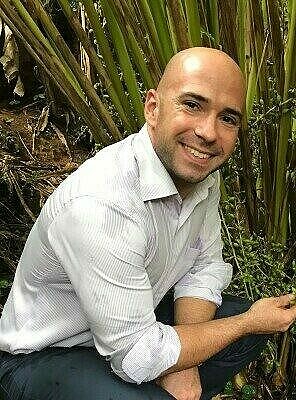Interview with Gabriel Sarasin, Director of Sustainability and Technology – McCORMICK
31st May 2023

Overview
“FSA is the result of the collective effort of sustainability front runners and leading brands in the food and beverage industry. It makes a lot of sense from a financial and technical standpoint to leverage the credibility of a recognised verification to guardrail an individual company effort”

McCormick & Company, a global leader in flavours, is dedicated to enhancing sustainability in their operations. As a member of SAI Platform, they have set ambitious goals to source 100% of their top five iconic ingredients sustainably by 2025. They have expanded their efforts by including additional crops and have recently achieved Silver Level Equivalence by rebenchmarking their Grown for Good Standard against FSA 3.0. Recognising the importance of small-scale farmers, McCormick collaborates with local partners to support Farmer Management Groups, ensuring that growers receive the necessary assistance for improved livelihoods. With their commitment and actions, McCormick is transforming the industry and making a positive impact on both flavours and lives.
You recently re-benchmarked your sustainable sourcing programme, Grown for Good against FSA 3.0. Congratulations on your Silver Level result! Why did you choose to use the FSA? How does this relate to your own sustainability targets and goals?
Gabriel Sarasin: Benchmarking our Grown for Good sustainability standard against the FSA provides two clear advantages for McCormick and our suppliers:
It provides credibility and recognition of our standard given the benchmarking is independent and facilitates a common sustainability language for the food and beverage industry. It allows us to talk the same sustainability language with our customers and to make credible claims through third party verification of our standard.
It provides added flexibility for our suppliers by enabling an equivalency between our standard and other third-party verified sustainability standards benchmarked as FSA Silver and above. If a supplier prefers to maintain an existing equivalent sustainability certification, which may be required by other customers, they can do so and sell it to us as Grown for Good equivalent, saving costs and time that could be redirected to other impactful activities on farms. Such flexibility allows us to accelerate progress toward our sustainable sourcing goals.
Can you tell us more about McCormick’s commitment to the sustainable sourcing of herbs and spices. What is unique about the regions and growers you work with?
Gabriel Sarasin: In our 2017 Purpose-Led Performance Report, McCormick & Company committed to increase the use of branded, sustainably grown herbs and spices, beginning with sustainably sourcing 100% of the top five branded iconic ingredients (black pepper, cinnamon, oregano, red pepper and vanilla), by 2025. Recently, we have extended our programmes to include seven other ingredient categories: turmeric, Indian seeds (cumin, dill, celery), ginger, sage, cardamom, cloves and thyme.
A significant proportion of our herbs and spices are grown in tropical regions around the equator by smallholder farmers. We work with our in-country partners to remove unnecessary intermediaries in our supply chains and source from a variety of Farmer Management Groups made of hundreds or thousands of smallholder farmers.
How important is it for you to get farmers on board with those ambitions? What are you doing to ensure buy-in? What are the main challenges you face when it comes to farmer engagement?
Gabriel Sarasin: The active engagement of farmers is paramount to any initiative that we undertake to deliver on our sustainable sourcing agenda. To ensure farmer’s buy-in, we must have their needs at the top of our agenda, and from an economic standpoint increase their profitability through better crop protection, improved yields, and better prices. Complying to sustainability verification requires effort and time from our farmers, and we therefore need to clearly communicate the benefits. While our sustainability standard is designed to reduce the administrative burden for farmers, the yield increase and the premium price paid for the verified products are usually key drivers for farmer engagement.
How does your FSA benchmark and your ongoing work on sustainable agricultural practice create commercial value for McCormick?
Gabriel Sarasin: The global roll-out of our sustainability standard, Grown for Good, has enabled sustainability claims on pack on some leading McCormick products. These claims allow us to connect our consumers with the farming communities we are sourcing from and to explain the impact of our programme in our countries of origin. McCormick’s ambition through its Purpose-Led Performance agenda is to deliver top-tier financial performance while doing what’s right for people, communities, and the planet we share.
What advice would you have for companies considering using the FSA? What are the key success factors for driving change and delivering impact?
Gabriel Sarasin: The FSA is the result of the collective effort of sustainability front runners and leading brands in the food and beverage industry. It makes a lot of sense from a financial and technical standpoint to leverage the credibility of a recognised verification to guardrail an individual company effort.
We utilise the FSA and other farm-level schemes benchmarked as FSA silver-level or above to satisfy our commitment to sustainable sourcing. It sets the foundation to build our program to deliver impact beyond standard compliance and to achieve our other sustainability ambitions that include increasing farmer and community resiliency under our Grown for Good Framework.
More information on McCormick’s achievements to date and the impact these efforts have had can be found here.